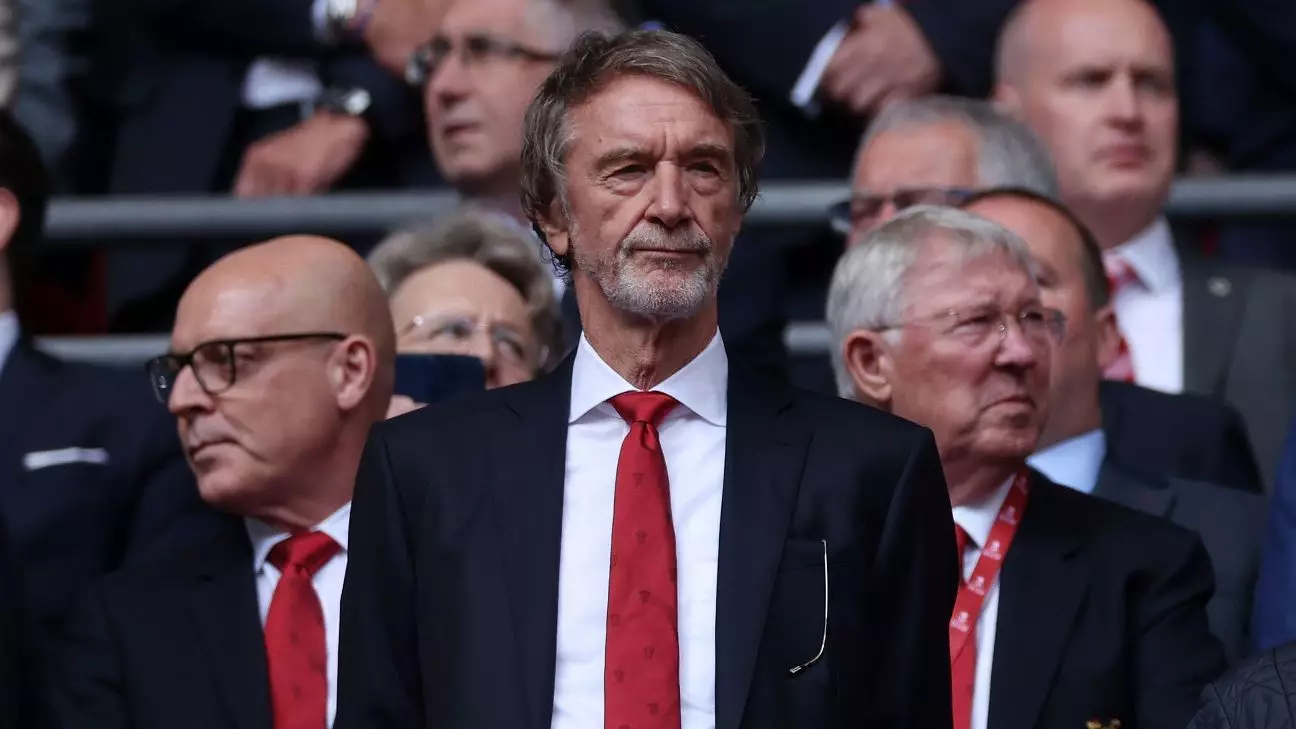Sir Jim Ratcliffe, the co-owner of Manchester United, has recently expressed his frustration with UEFA’s rules on multi-club ownership. These rules have prevented the club from signing a player from Ligue 1 side Nice, a club that Ratcliffe’s company INEOS acquired in 2019. Despite completing a deal to purchase a minority stake in United, the qualification of both Nice and United for the UEFA Europa League has raised concerns about the clubs conducting business with each other in the transfer market. UEFA’s regulations state that no individual or legal entity should have control or influence over more than one club participating in a UEFA club competition. This control is defined as the ability to exert a decisive influence in the decision-making process of the club.
In a recent interview with Bloomberg, Ratcliffe expressed his disappointment with UEFA’s regulations. He highlighted the case of a player who could be sold to another Premiership club but not to Manchester United, citing the unfairness of this restriction on the player. This limitation not only affects the player’s opportunities but also hinders the clubs’ abilities to conduct business freely in the transfer market. This situation sheds light on the complexities and challenges faced by clubs with shared ownership in navigating UEFA’s rules.
The Role of the Manager
Sources have revealed that Manchester United have decided to retain Erik ten Hag as their manager for the upcoming season. Ratcliffe emphasized the importance of creating the right “environment” at the club rather than focusing solely on personnel changes. He believes that establishing a competitive yet supportive environment is crucial for the club’s success in English and European football. According to Ratcliffe, the coach is not the central issue at Manchester United, emphasizing the need for intensity and support when working with young players.
Support for Manchester City
Ratcliffe expressed his support for Manchester City as they launched legal action against the Premier League over Associated Party Transaction rules. These rules were tightened to regulate clubs’ sponsorship deals with companies linked to their owners. Ratcliffe understands City’s stance in challenging these rules, advocating for a more open and free market approach in football. This support highlights the ongoing debate surrounding financial regulations in football and the balance between fair competition and financial sustainability.
The Labour Party has proposed the introduction of a new football regulator in the UK following the upcoming general election. This regulator aims to impose further controls on clubs’ spending to prevent financial mismanagement and protect fans’ interests. Ratcliffe, however, has voiced his opposition to this proposed legislation, raising concerns about potential overregulation. He also criticized the “anchoring” system that Premier League clubs have agreed to trial, suggesting that it could inhibit the top clubs’ competitiveness in the Premiership.
Overall, the discussion around multi-club ownership, UEFA regulations, and financial controls in football reflects the ongoing challenges and debates within the sport. As clubs navigate complex ownership structures and regulatory frameworks, finding a balance between competitiveness, financial sustainability, and fair play remains a key concern for stakeholders in the football industry.
